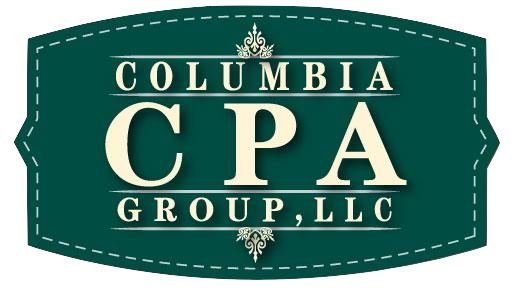
I thought it might be time to explain some of the basics of taxes. Taxes fund expenditures of government. Synonyms for “tax” include: duty, tariff, civil obligation, levy, toll, government’s share. In the United States, there are taxes on: income, payroll, sales, transactions, use, transfer, estates (accumulated wealth of individuals), real estate and personal property, etc.
Many taxes can be avoided by refraining from certain activities. For example, to avoid sales taxes you can choose to refrain from making a purchase. To avoid paying real estate taxes, you could shun homeownership and rent your home. In most cases, it is not realistic to avoid paying taxes. However, the US Tax Code is a different matter. Parts of if date back to 1954. It has been the financial laboratory of Congress for decades in their quest to create a perfect society. It may also have been used by some politicians to insert tax breaks for constituents and donors in hope of getting re-elected.
There are no absolute rules regarding taxes. Unlike other civil laws that have been in affect for hundreds of generations, taxes have no conscience. If a government can levy a tax and the people pay it, it works, it is a success. There accepted principals of taxation:
- Equity. The burden of any tax should be shared equitably.
- Efficient. The cost of collecting tax should not be excessive.
- Exactness. The amount of tax should be certain and simple to calculate and not arbitrary. (I my opinion, the income tax code fails here. The progressive tax rates appear to indicate that wealthy people pay more taxes proportionally, than you or I do. However, the abundance of “cracks in the code” put there on purpose, allows tax savvy wealthy people to legally avoid paying their fair share. Some of those strategies cost a lot to set up, but others do not. In a previous article, I quoted billionaire Warren Buffet saying that his secretary pays more in taxes than he does.)
- Social acceptance. The item being taxed should align with the morals of the people being taxed. In most states, the purchase of alcohol or cigarettes include a “sin” tax.
- Wherewithal to pay. Taxes should only be due when a taxpayer has the cash to pay the tax.
The current income tax code is quite complex. Although technically only about 2,600 pages, a prominent tax resource tool (used by tax experts) is 74,000 pages long. If you include every tax-related court case the pages number in the millions. The average automobile has about 30,000 parts. Every part has a purpose, and robots are used for much of the assembly. The tax code is more complex, makes less sense, defies logic and even contradicts itself. Moses came down from Mount Sinai with 10 Commandments which I can fit on one page. The Declaration of Independence was written on one page, the US Constitution on two pages, and the Bill of Rights on one page. Some people have trouble understanding those historical documents. How can taxpayers be expected to understand and follow a vastly more complicated text?
In case you ever read about proposed tax changes, or read an IRS Publication, or talk to your CPA about your taxes, I have provided a Glossary of terms used in reference to your personal tax return (Form 1040). (Sorry, business taxes will have to wait for a future article.)
- Adjusted basis – Cost of an asset, plus improvements, less depreciation.
- Adjusted Gross Income (AGI) – Total tax less certain deductions.
- Alternative Minimum Tax (AMT) – Additional tax owed after removing certain deductions when AGI exceeds a set level.
- Capital gain – Results when an asset is sold for more than its adjusted basis.
- Constructive receipt – A legal concept that determines when the right to receive income occurred.
- Credit – A dollar for dollar reduction of tax; better than a deduction.
- Deduction – An IRS-approved reduction of taxable income.
- Dependent – A qualifying relative you support, usually a child or parent.
- Depreciation – The portion of the cost of an asset that can be claimed as a deduction (expense) on a tax return.
- Evasion – Illegally and purposely reporting fraudulent numbers on a tax return to reduce taxes.
- Expense – Refers to deductions by business owners, farmers, landlords, etc., for ordinary and necessary expenditures that offset gross income in arriving at net (taxable) income.
- Extension – Refers to a timely-filed Form 4868 that allows a 6-month delay in the filing of a tax return. (Note, an extension does not extend the date the taxes are required to be paid!)
- FICA tax – Federal Insurance Contributions Act, requires the payment of payroll taxes by an employee and an employer to fund Social Security and Medicare.
- Gross income – Usually refers to total income by a business before any expenses.
- Itemized deduction – Allowable deductions (like taxes and charitable contributions) in arriving at Taxable income if they exceed the Standard Deduction amount.
- Self-employment tax – An additional tax charged to business owners on earned income, equal to the combined payroll taxes paid by an employee and an employer
- Standard deduction – An automatic deduction determined each year according to filing status
- Taxable income – The amount on which income taxes are computed after adding all income and applying all deductions.
- Taxpayer Advocate – A separate arm of the IRS that serves as an advocate for taxpayers who are in conflict with an auditor regarding the proper amount of tax owed.
- Total tax – The sum of all taxes computed on a tax return.
Aric Schreiner, CPA, PFS, is managing member of Columbia CPA Group, LLC.




